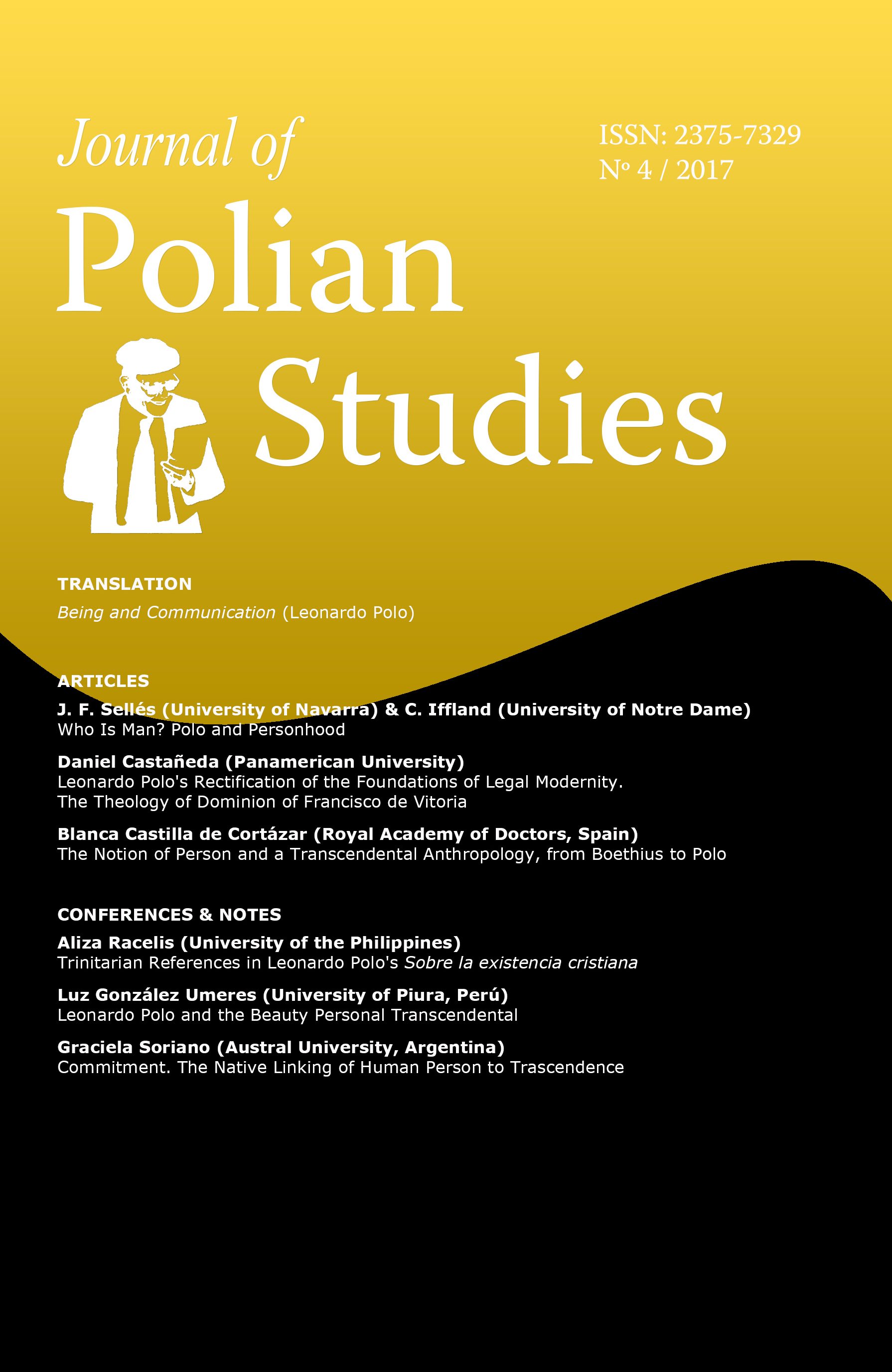The Notion of Person and a Transcendental Anthropology From Boethius to Polo
Whether the separated soul is a person, and whether the person is the whole or the 'esse' of man
Keywords:
person, thing, act of being, esse, soul, substance, subsistence, Boethius, Thomas AquinasAbstract
The notion of person, absent from Greek metaphysics, was a philosophical contribution from Christianity. Through the Cappadocians, the term hipóstasis was left without its pure value as hypokeímenon and substance in order to bring it closer to the meaning Latin authors had given to the term person –as different from things. Theology applied this notion to God, describing it as a subsistent relation. When applied to man, however, Boethius defines it as individual substance of a rational nature, thus depriving it of its peculiar features –its subsistence and its relational character– while also losing the analogical framework between the human and the divine. Saint Thomas, following Boethius, initially declares that the separated soul is not a person, as this seems only proper of the human “whole”. Still, he would later on reformulate this view, describing it as “spiritual subsistent” (De potentia 9, a4, c), and newly grounding it in being. Recently, the fundamental structure of Thomist metaphysics and its difference between essence and esse was recovered by Leonard Polo, who applied this distinction to Anthropology, opening the way for an understanding of the person as the free act of being of man.


